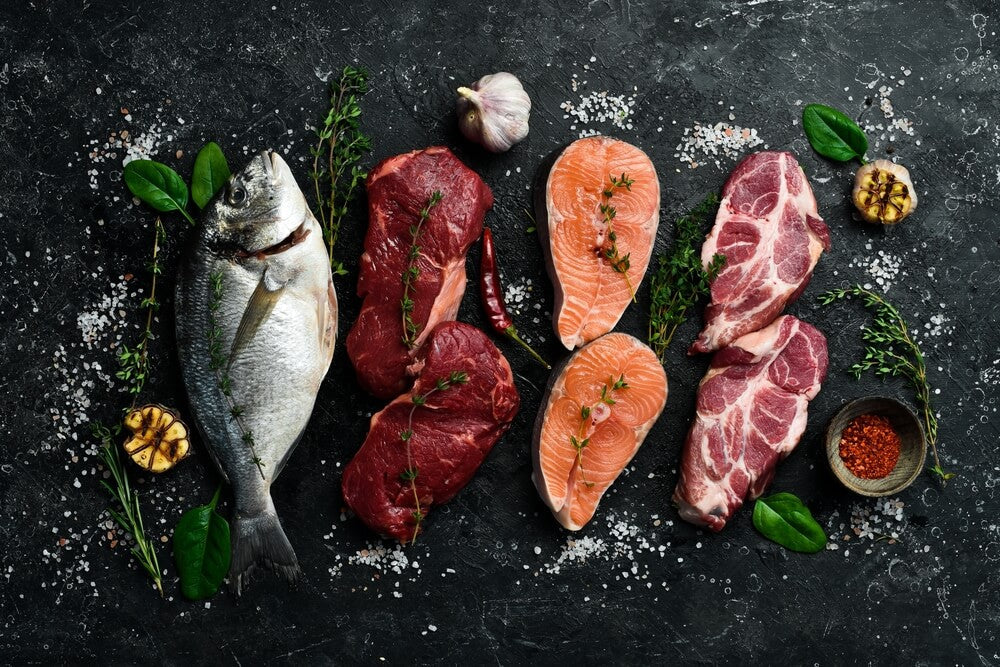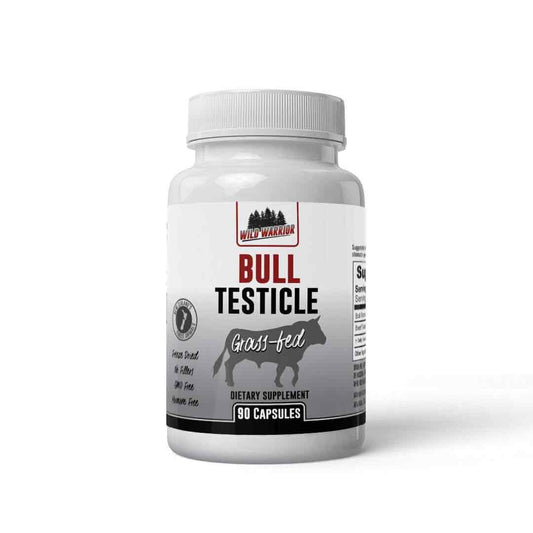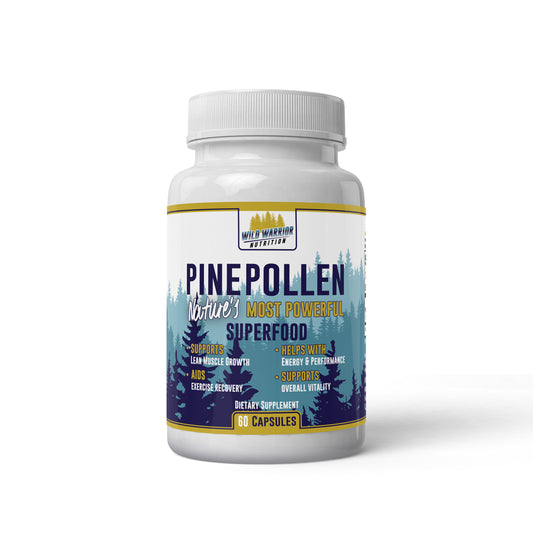Two of the most talked about diets in recent years are the carnivore diet and the animal-based diet. While they may seem similar on the surface, they are actually quite different. Find out what's the same and what's different between these two dietary approaches.
What is a Carnivore Diet?
The carnivore diet is a highly restrictive diet that involves consuming only animal products. Some form of this diet has always been around, but it was made popular recently by influencers like Dr. Shawn Baker, Dr. Paul Saladino, Dr. Anthony Chaffee, and others.
The carnivore diet is essentially the opposite of a vegan diet and does not allow fruits, vegetables, grains, legumes, nuts, seeds, or any other plant-derived foods.
The diet primarily focuses on meat, fish, eggs, and sometimes dairy. Proponents of this diet argue that it can help with weight loss, reduce inflammation, and improve certain health conditions1.
What is an Animal-Based Diet?
Unlike the carnivore diet, an animal-based diet is not as restrictive. While it emphasizes animal products like meat, fish, and eggs, it also allows for the consumption of some plant foods. This approach is more similar to an Auto-Immune Diet or Auto-Immune Protocol (AIP) as some referred to it.
The key here is that animal foods make up the majority of the diet, but fruits, some vegetables (not nightshades), and other plant foods are not completely excluded.
Grains, pasta, and legumes are typically avoided with both approaches.
Comparing the Carnivore Diet to the Animal-Based Diet
Nutritional Balance
One of the main differences between these two diets lies in their nutritional balance. The carnivore diet, due to its highly restrictive nature, can potentially lead to deficiencies in certain nutrients that are primarily found in plant foods, such as fiber, vitamin C, and certain types of antioxidants2.
Many of these potential deficiencies can be addressed through supplementation or the direct consumption of organ meats like beef liver, testicle, heart, etc.
On the other hand, an animal-based diet, while still emphasizing animal foods, allows for a wider variety of foods, including fruit, honey, and fermented dairy, which can fill in the gaps caused by eating meat only.
This makes it easier to achieve a balanced diet and avoid nutritional deficiencies. The flexibility can also increase sustainability, as restrictive diets like the vegan diet and strict carnivore diet can be hard to maintain.
Flexibility
Flexibility is another significant difference. The carnivore diet requires strict adherence to consuming only animal products, leaving little room for variety or flexibility. As previously mentioned, this can make it challenging for some people to stick to long-term.
Living strictly on meat and salt water can get boring fast. I can't see how eating steak, bacon, and seafood at every meal could get boring, but I honestly have never made it on just meat for more that a week or two as a type of fast. Usually some BBQ, night out with friends, tailgating, or other distraction weakens my discipline and I cave back to my gluttonous consume everything mode.
The animal-based diet is more flexible, which many folks appreciate, especially those that enjoy fruit, smoothies, and dairy. You could probably get a way with a cucumber or two with this approach, but I will leave the discussion of vegetables to the comment section.
Because the animal-based diet prioritizes animal foods, but doesn't completely exclude all other foods, many individuals are able to adhere to this diet over the long term.
Health Implications
The health implications of these diets are still a topic of ongoing research. Some studies suggest that a carnivore diet may lead to improvements in certain health markers, such as fat loss, improvements in immune function, and blood sugar control3.
On the other side, an animal-based diet that includes fruits, organ supplements, some dairy, and other targeted herbal supplements like Pine Pollen and Cistanche can provide a wider array of nutrients, potentially leading to better overall health.
The most important thing to remember is that this is no one diet for everyone. It's essential to ensure that any approach you take is suitable for your individual health needs and in line with your goals and medical needs. That is why we strongly encourage people to consult with a healthcare professional and to have regular blood work done before starting any new diet plan.
Conclusion
When choosing between a carnivore diet and an animal-based diet, it's crucial to consider your personal health goals, dietary preferences, and lifestyle. While both diets emphasize animal products, they differ in flexibility and nutritional balance.
My personal preference is to use the strict carnivore diet as a periodic fast for fat loss, and a more animal based approach with supplements the rest of the year. This way of eating has helped me keep my muscle and libido as I enter my 40s, and also helps keep my auto-immune issues at a distance.
Best of luck finding what works best for you.
Michael DiCroce, Founder/CEO of Wild Warrior Nutrition
Footnotes
-
Nutritional Deficiencies on the Carnivore Diet






